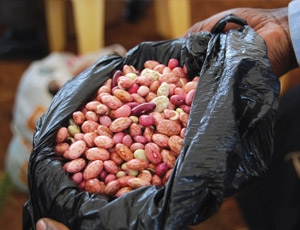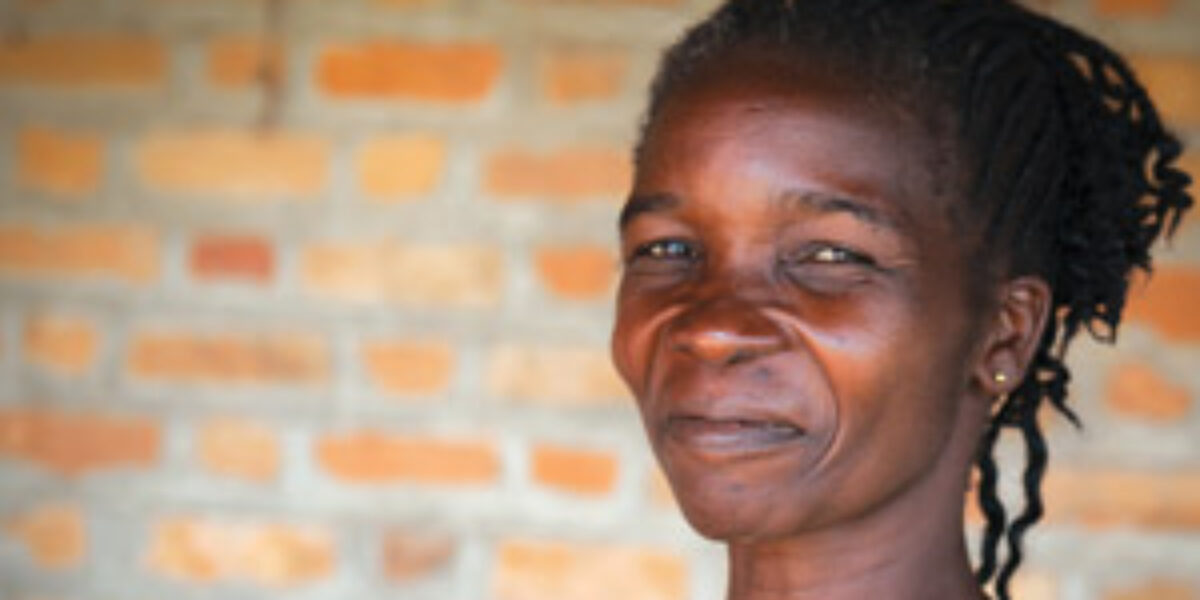
Suzanne received training at a trauma healing equipping session in 2012. Now she provides trauma healing to others where she lives in Duru, Democratic Republic of the Congo. Peter Edman
Pastor Ndri was happy with life. He had a wonderful wife and a thriving congregation. But all that changed when rebels seized the main town, showering bullets like rain. Countless men, women and children were killed.
Pastor Ndri, along with his wife and a group of 100 people, fled on foot to safety. The journey was fraught with danger and death. Many people succumbed to disease, including Pastor Ndri's wife, who was buried quickly in the bush.
When Pastor Ndri finally got to safety, he experienced nightmares and great anger — at God, at the rebels who caused so much destruction, at his wife for dying. As a pastor, he knew he shouldn't show these feelings to anyone. So he quietly tried to re-establish a new life for himself. But he couldn't. He was simply a shadow of the man he once was.
It's for people like Pastor Ndri that American Bible Society has established its Trauma Healing Institute, which offers Scripture-based hope and healing to people traumatized by war, ethnic conflict, human trafficking, civil unrest, crime and natural disasters.
ABS' program helps people come to terms with their trauma within a biblical context. The framework for the program is Healing the Wounds of Trauma. Using 217 Scripture passages, the book employs real-life stories to help people connect the biblical teaching with their circumstances.
“The Bible speaks of God's people suffering,” says Harriet Hill, program director of ABS' trauma healing program and coauthor of Healing the Wounds of Trauma. “Through Scripture, people learn they're not alone, that others have felt the way they feel. Scripture is directly applicable to their lives.”
To initiate trauma healing, ABS gathers top leaders of churches and organizations to introduce the program and invite them to integrate it into their ministries. An equipping session is then organized for church leaders, who experience healing of their own trauma while being trained to facilitate groups in their communities.
Once trained in the program, these church leaders conduct healing sessions with up to 12 people within their local communities. After the sessions are conducted — a process that can take three or four months — a public celebration is held for those who've completed the program.

The Trauma Healing Institute uses Scripture to help people of all ages heal from the pain of deep trauma. Peter Edman
While Scripture is the core of the program, mental health principles are also employed so that trauma survivors learn how to cope with their grief and pain.
Sadness, anger, grief, fear and emotional pain are normal after traumatic events, says Hill. But in certain parts of the world, people are taught to ignore their pain, as Pastor Ndri did. In many cases, faith is used as a way to cover painful emotions rather than as a conduit to deal with them.
“Many people think that if you're a Christian, you are never sad, angry or hurt,” Hill says. “And if you do feel these emotions, then you don't have faith.
“People need to learn what to do with these feelings,” continues Hill. “It's dangerous to say, ‘My son was shot, but I'm fine.' The person isn't fine.”
The mental health aspect of the program equips Christians to deal with their trauma. In doing so, they can move on to embrace a healthy life and build a strong relationship with God and others.
ABS' flagship initiative, She's My Sister™, has employed Scripture-based trauma healing in the Democratic Republic of the Congo since February 2011. Now the program is active in other African countries, including South Sudan and Rwanda, as well as around the world in Thailand, Ecuador, Peru and Mexico.
Stories abound of people who've found renewed hope and peace. Yassir Musa, a refugee who attended ABS' trauma healing sessions in South Sudan, said, “I am new born. … Everything that was in my body and heart has cooled down. I am at peace. My faith has grown, and I am becoming a better person.”
Abdallah Kuku, another refugee from South Sudan who attended ABS' trauma healing sessions, said “I didn't know how to share my pain with others or how to help [them]. … Trauma healing [teaches us] how [to] create right relationships between us as we are healed ourselves.”
Through her work, Hill has been privileged to witness the power of Scripture-based trauma healing. “God's Word helps bring healing,” she says. “There is no doubt about it. But ultimately, healing is found through Jesus Christ on the cross.
By his stripes we are healed.”
Maria Wolf is a regular contributor to Record.
To learn more, visit Sister.AmericanBible.org »





